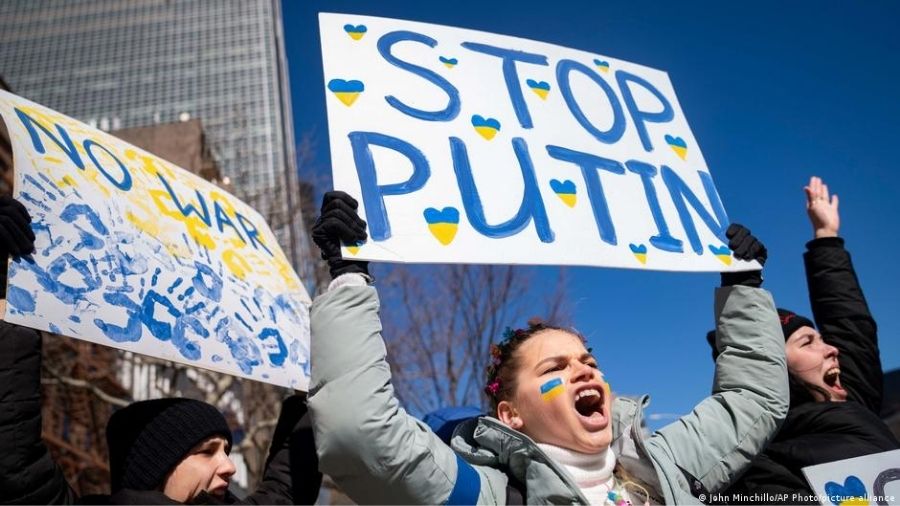After three weeks of intense fighting between Russia and Ukraine, the first signs of progress are emerging in negotiations between the neighbours. Ukraine’s president, Volodymyr Zelensky, said on Tuesday that the proposals in fresh talks were “realistic”. He also told his military leadership to accept the “reality” that Ukraine would not be joining NATO, one of Moscow’s key demands. The Russian foreign ministry said last week that it would prefer talks over war. Meanwhile, Turkey’s president, Recep Tayyip Erdogan, and Israel’s prime minister, Naftali Bennett, are playing the role of peacemakers — an assignment that some had hoped India's prime minister, Narendra Modi, would take up. None of this is guaranteed to bring peace. These negotiations are about the very future of Ukraine and are bound to be complex. The two sides will go back and forth before they can arrive at any agreement. But as it becomes increasingly clear that Russia cannot crush the Ukrainian resistance and that the West will not intervene militarily, there is hope that both Moscow and Kyiv will recognize that the only way forward in an unwinnable war is to end it. Sadly, it only needs an aggressor to start a war, but two sides to end one.
Any peace deal will involve compromises by both Moscow and Kyiv. Yet, there is a growing consensus around some of the contours of a possible agreement. Ukraine will almost certainly have to pledge neutrality between Russia and the West, formally give up its demand to join NATO, and grant significant autonomy to rebel-held territories in the Donbas region. Russia will need to withdraw troops from Ukraine and accept that it cannot force a regime change in Kyiv — at least not militarily. It will need to assure Ukraine that it will not unilaterally try to redraw that country’s borders. In return, the West will need to commit to a phase-out of recent economic sanctions against Moscow. Such a deal could give Russia a face-saver, with something to show for its misadventure. Ukraine would be saved from further devastation. It is true that even if the talks succeed and the war draws to a close, it will only be replaced by an uneasy peace. But that is the brutality of war: once it starts, the only choice is between less palatable and unpalatable outcomes. For their people and the world, Russia and Ukraine must pick the former.










